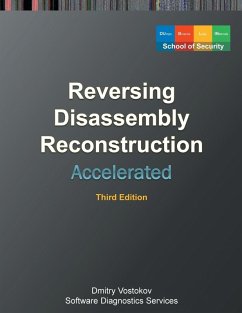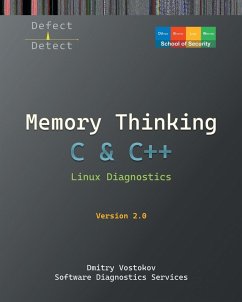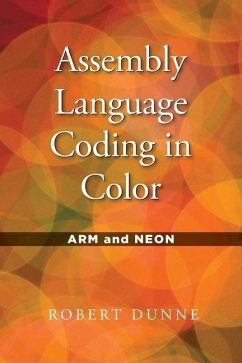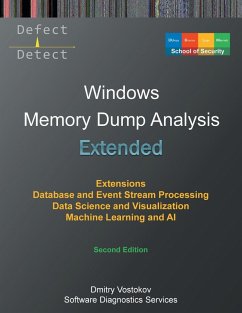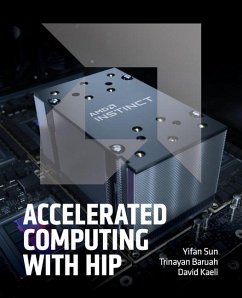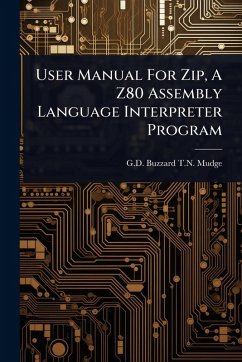
Accelerated Linux Disassembly, Reconstruction and Reversing
Training Course Transcript and GDB Practice Exercises with Memory Cell Diagrams, Second Edition
Versandkostenfrei!
Versandfertig in über 4 Wochen

PAYBACK Punkte
45 °P sammeln!




Learn disassembly, execution history reconstruction, and binary reversing techniques for better software diagnostics and debugging on x64 and ARM64 Linux platforms via practical step-by-step hands-on exercises using GDB and memory dumps.
Dmitry Vostokov is an internationally recognized expert, speaker, educator, scientist, inventor, and author. He founded the pattern-oriented software diagnostics, forensics, and prognostics discipline (Systematic Software Diagnostics) and Software Diagnostics and Observability Institute. Vostokov has also authored over 50 books on software diagnostics, anomaly detection and analysis, software and memory forensics, root cause analysis and problem solving, memory dump analysis, debugging, software trace and log analysis, reverse engineering, and malware analysis. He has over 30 years of experience in software architecture, design, development, and maintenance in various industries, including leadership, technical, and people management roles. Dmitry founded OpenTask Iterative and Incremental Publishing and Software Diagnostics Technology and Services (former Memory Dump Analysis Services). In his spare time, he explores Software Narratology and Quantum Software Diagnostics. His interest areas are theoretical software diagnostics and its mathematical and computer science foundations, application of formal logic, semiotics, artificial intelligence, machine learning, and data mining to diagnostics and anomaly detection, software diagnostics engineering and diagnostics-driven development, diagnostics workflow and interaction. Recent interest areas also include functional programming, cloud native computing, monitoring, observability, visualization, security, automation, applications of category theory to software diagnostics, development and big data, and diagnostics of artificial intelligence.
Produktdetails
- Verlag: Opentask
- 2nd edition
- Seitenzahl: 284
- Erscheinungstermin: 3. Mai 2025
- Englisch
- Abmessung: 279mm x 216mm x 19mm
- Gewicht: 916g
- ISBN-13: 9781912636747
- ISBN-10: 1912636743
- Artikelnr.: 74197660
Herstellerkennzeichnung
Libri GmbH
Europaallee 1
36244 Bad Hersfeld
gpsr@libri.de
Für dieses Produkt wurde noch keine Bewertung abgegeben. Wir würden uns sehr freuen, wenn du die erste Bewertung schreibst!
Eine Bewertung schreiben
Eine Bewertung schreiben
Andere Kunden interessierten sich für


